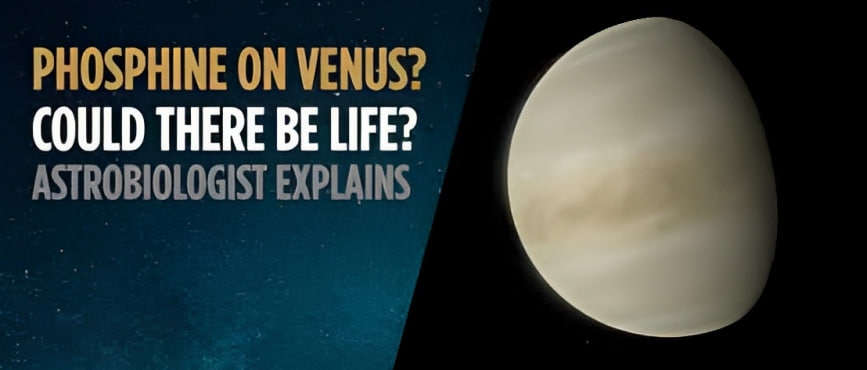Description

Copyright infringement not intended
Context: Phosphine is a gas that on Earth is usually associated with living organisms. It has been found in the clouds of Venus, raising the question of whether there could be life there. A new analysis suggests that phosphine may exist at lower altitudes in the Venusian atmosphere, where the conditions are more favourable for life.
Details
- The possibility of life on Venus has been a topic of intense debate since 2020 when a team of scientists from Cardiff University reported the detection of phosphine gas in the planet's clouds. Phosphine is a molecule that is usually associated with biological activity on Earth, and its presence on Venus could indicate the existence of some form of life.
- However, the initial study was met with scepticism and criticism, and subsequent observations failed to confirm the phosphine signal.
Recent Discovery
- Recently a team of scientists announced a new discovery that could revive the hopes of finding life on Venus. Using the James Clark Maxwell Telescope (JCMT) at Mauna Kea Observatory, Hawaii, they have detected phosphine at a deeper level in Venus' atmosphere than before.
- This suggests that the gas is not an artefact of the instrument or the data processing, but a real feature of the planet's environment.
- The team spent more than a year analyzing and verifying their results before presenting them at the National Astronomy Meeting 2023. They claim that their findings are robust and consistent and that they have ruled out all known non-biological sources of phosphine on Venus.
- They propose that the phosphine could be produced by some kind of microbial life that thrives in the harsh conditions of Venus' lower atmosphere.
- At the National Astronomy Meeting, Scientists explained that the clouds of Venus are the most likely place for life to exist, if it does at all. They said that there is a small chance that some kind of life forms could survive in the acidic and turbulent conditions there.
- They also said that phosphine is not definitive proof of life, as it could have other sources that are not well understood.
The discovery is likely to spark more interest and controversy in the scientific community, as well as inspire more missions and experiments to explore the mysteries of Venus.

Phosphine (PH3)
- Phosphine (PH3) is a colourless, flammable, highly toxic gas with a foul odour like rotten fish.
- It is formed by the reaction of white phosphorus with sodium hydroxide or by the hydrolysis of calcium phosphide.
- It can also be produced by some microorganisms in anaerobic conditions.
- It is slightly soluble in cold water, but insoluble in hot water.
- It is heavier than air and can form explosive mixtures with air or oxygen.
- It is used as a fumigant to kill pests in stored grains and tobacco, as a dopant in semiconductor industries, and as a precursor for other phosphorus compounds.
- It is essential to the biochemical cycle of some organisms that live in oxygen-poor environments, such as wetlands, sewage, or the intestines of animals. It can act as an energy source or a signalling molecule for these organisms.
- It is a highly toxic respiratory poison that can cause death or serious health effects in humans and animals. It can cause symptoms such as headache, nausea, vomiting, chest pain, difficulty breathing, convulsions, coma, and cardiac arrest.
- It is used in many industries, such as agriculture, pest control, semiconductor manufacturing, and plastic production.
Must-Read Articles:
Venus: https://www.iasgyan.in/daily-current-affairs/venus
|
PRACTICE QUESTION
Q. Phosphine is used as a fumigant to;
1. Kill insects and rodents
2. Prevent fungal growth
3. Enhance crop yield
4. Improve soil quality
How many of the above code is/are correct?
A) Only 1
B) Only 2
C) Only 3
D) All
Answer: A
Explanation: Phosphine is used as a fumigant to kill insects and rodents in stored grains, animal feed, and other commodities. It is highly toxic to mammals and insects but has low persistence in the environment.
|

https://www.livemint.com/science/news/is-there-life-on-venus-heres-what-new-evidence-of-phosphine-in-clouds-of-venus-indicates-11689040248584.html











